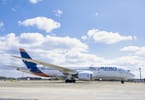LUXEMBOURG — Europe and the United States on Thursday signed an expanded airline “open skies” agreement, but the key new goal of removing restrictions on cross ownership of carriers still faces major hurdles.
The two sides agreed to let European and American airlines take majority stakes in carriers from each side of the Atlantic, but the change requires the approval of legislatures before it can take effect.
“Today we are taking an important step forward in our mutually advantageous relations with the United States in the aviation sector,” European Union Transport Commissioner Siim Kallas said in a statement from Luxembourg, where the document was signed.
The deal, he said, “will help the European air transport sector to emerge from the difficult period it has recently experienced.”
An “open skies” deal was first reached in 2007 after four years of negotiations. It took effect in 2008, eliminating air service restrictions between the United States and Europe and allowing airlines to fly for the first time between any EU city and any US city.
Negotiations for the liberalisation of airline ownership were concluded March 25, but the International Air Transport Association (IATA) expressed disappointment at the time, saying the deal did not go far enough.
The new agreement, which was signed by US Transportation Secretary Ray LaHood, deals with the thornier issue of foreign ownership of airlines.
EU companies currently can hold no more than a 25-percent stake in US counterparts.
US operators on the other hand are already allowed to control 49 percent of European carriers, a difference which has long rankled with individual carriers.
The accord calls for such restrictions on majority ownership to be lifted, but it must first be signed off by the US Congress and then the EU to take effect, an uncertain and lengthy process.
“It is the best we can do for the moment,” a European diplomat said on condition of anonymity.
Another diplomat said: “We would have liked to go further, but this allows us to avoid scrapping the 2008 agreement.”
The new deal also harmonises environmental rules on aircraft emissions, fuel and noise and would for the first time allow European planes to fly in and out of the United States without landing or taking off in the EU.
“This agreement will benefit consumers, airlines, workers, communities and airports on both sides of the Atlantic,” LaHood said.
A full EU-US Open Aviation Area has been estimated to be worth up to 12 billion euros (14.75 billion dollars) in economic benefits and up to 80,000 new jobs.
Spanish Public Works Minister Jose Blanco, whose government currently holds the EU’s rotating presidency, said the agreement will cover 60 percent of transtlantic flights “which will pollute less, will be shorter and cost less.”
WHAT TO TAKE AWAY FROM THIS ARTICLE:
- The new deal also harmonises environmental rules on aircraft emissions, fuel and noise and would for the first time allow European planes to fly in and out of the United States without landing or taking off in the EU.
- The accord calls for such restrictions on majority ownership to be lifted, but it must first be signed off by the US Congress and then the EU to take effect, an uncertain and lengthy process.
- The two sides agreed to let European and American airlines take majority stakes in carriers from each side of the Atlantic, but the change requires the approval of legislatures before it can take effect.






















